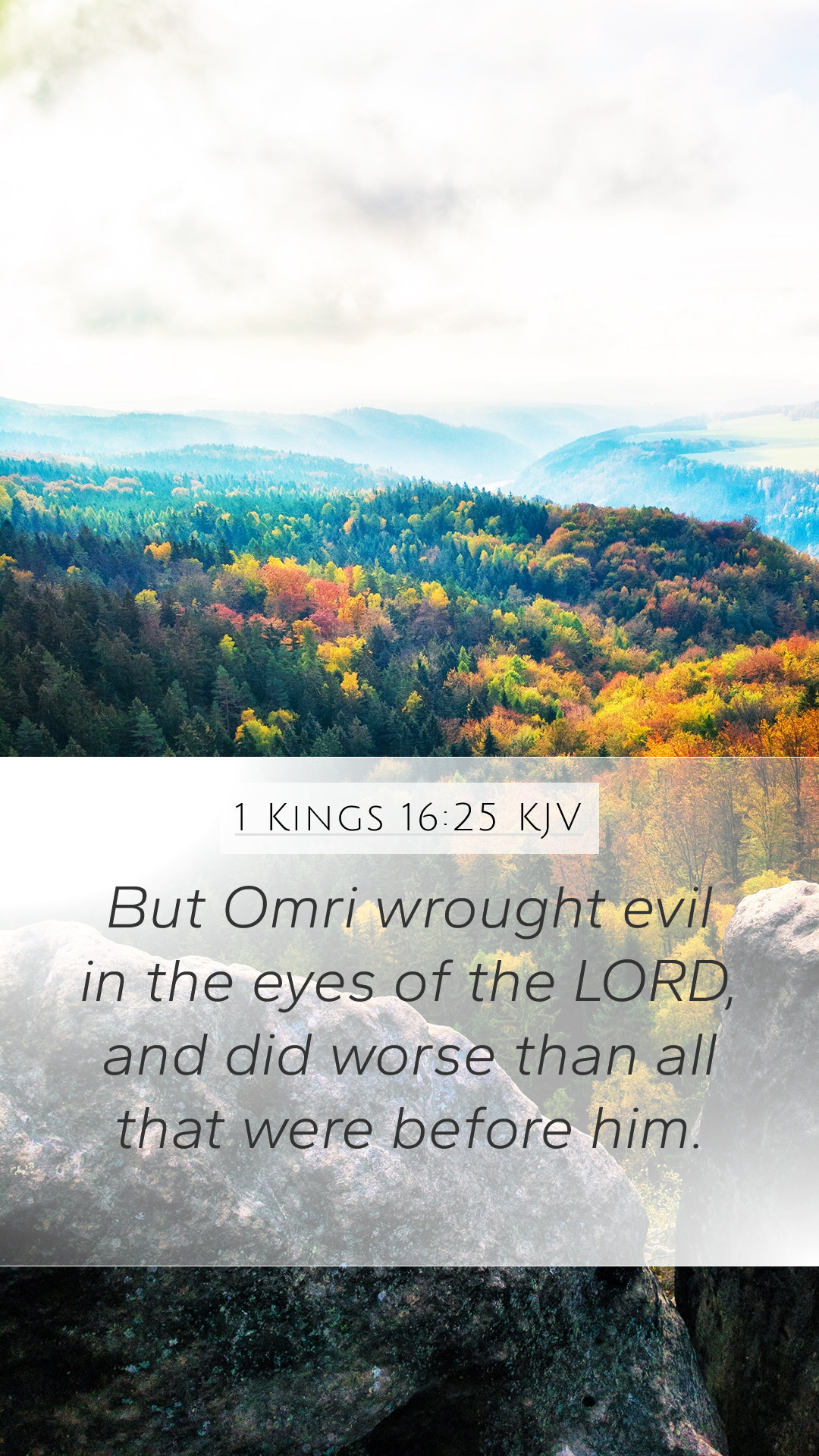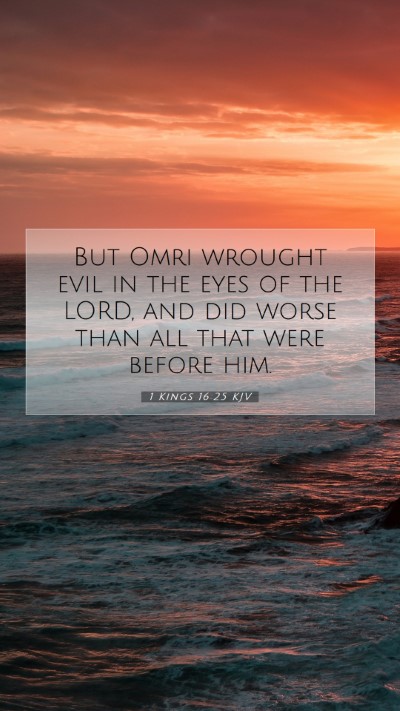Meaning of 1 Kings 16:25
The verse 1 Kings 16:25 states:
“But Omri did what was evil in the sight of the Lord, and did worse than all who were before him.”
This verse provides significant insight into the actions of Omri, the king of Israel, emphasizing his wickedness and the implications of his reign. Below is an organized analysis based on established public domain commentaries.
1. Historical Context and Background
This passage is situated within the narrative of the Israelite monarchy, amidst a backdrop of political strife and spiritual decline. Omri ascended to the throne and established a dynasty marked by idolatry and rebellion against God's commandments.
2. Analysis of Key Themes
- Wickedness of Leadership: Omri's actions are described as the worst in comparison to his predecessors. This denotes a significant decline in moral and spiritual standards.
- God’s Perspective: The phrase “in the sight of the Lord” highlights that it is God's judgment that truly matters, not human opinion.
- Contrast with Righteousness: Omri's reign is juxtaposed with the righteousness expected of a leader, reflecting the importance of piety in governance.
3. Commentary Insights
According to Matthew Henry, Omri's evil is not just personal, but systemic, affecting the nation as a whole. His reign initiated further spiritual corruption, paving the way for future kings like Ahab, who continued this trajectory.
Albert Barnes emphasizes that Omri’s actions were part of a pattern of increasing idolatry in Israel. His policies promoted the worship of Baal, which was a direct affront to God's covenant with Israel.
Adam Clarke remarks on the political maneuverings of Omri, indicating that his rise to power involved significant military and diplomatic strategies but came at a spiritual cost. Clarke highlights that the moral decay is accompanied by political strife, showing how intertwined governance and faith are.
4. Significance and Application
1 Kings 16:25 serves as a solemn reminder of the impact of leadership on a nation’s spiritual health. It invites reflection on how leaders can lead their people closer or further away from God’s will.
Application for Today
This verse encourages individuals and groups, especially Bible study groups, to critically evaluate their leaders—both spiritual and secular. It also serves as a call for personal integrity and righteousness in daily life, informing how one might influence their community.
- Bible Study Insights: How does contemporary leadership mirror that of Omri’s?
- Understanding Scripture: How do we discern what is “evil” in modern contexts?
5. Cross References
- 1 Kings 21:25: Brings further context on the deeds of Ahab, Omri’s son.
- 2 Kings 10:31: Discusses the continuation of the wickedness established by Omri’s lineage.
- 1 Kings 15:26: A comparison of Omri with previous kings highlighting the ongoing decline of Israel's fidelity to God.
Final Thoughts
As we pursue Bible verse interpretations and deeper scripture analysis, 1 Kings 16:25 stands as a critical verse in understanding the consequences of turning away from God and the importance of righteous leadership.
In conclusion, meaning of Bible verses like this one invites us to engage in biblical exegesis and evaluate both historical and practical applications to our lives today.


